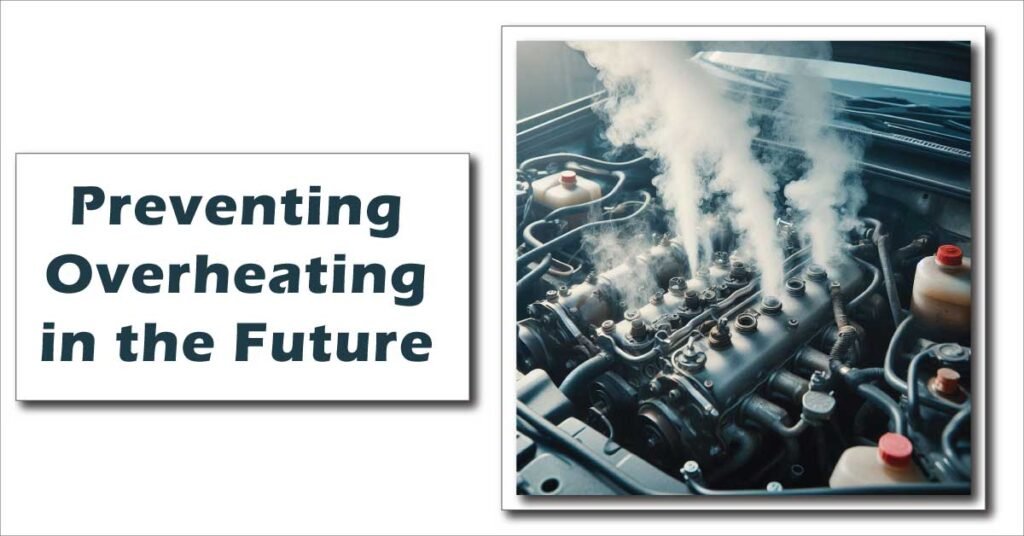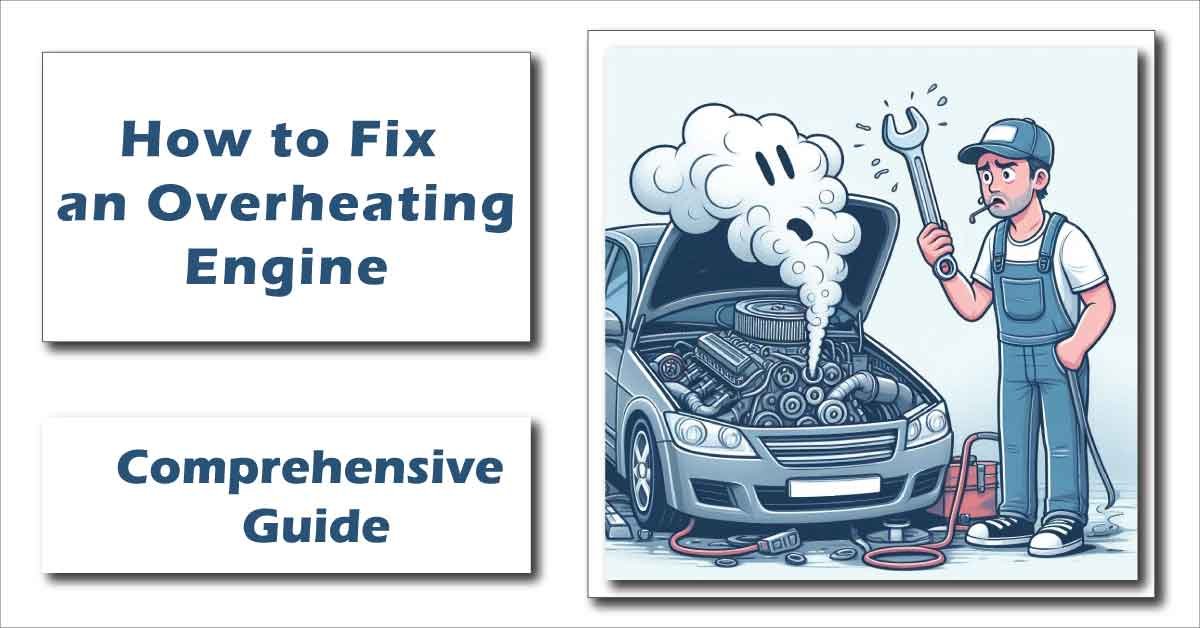It becomes very dangerous if an engine becomes too hot and requires urgent attention to prevent serious complications. It must be comprehended how an offender happens by the method of the following techniques and the right resolution and maintenance methodologies adopted. This is a complete article that both gives step-by-step instructions as well as advice on how to fix an engine that is running hot.
Understanding Engine Overheating
When the temperature of the engine gets higher than the optimum level, then it is referred to as engine overheating. Failure to address this can lead to severe damage that is irreparable at times. However, before embarking on fixing an overheating engine, it important to know why it happens. Some of the common reasons include leakages in the system, a bad thermostat, water pump problem, problems with the radiator and there could be a blockage to the coolant channels.
Common Causes of Engine Overheating
1- Coolant Leaks: Coolant is essential for regulating engine temperature. A leak in the coolant system can cause a loss of coolant, leading to overheating. Check for signs of coolant leaks around the radiator, hoses, and water pump. Repair any leaks promptly to prevent further issues.
2- Faulty Thermostat: The thermostat controls the flow of coolant through the engine. A malfunctioning thermostat can restrict coolant flow, causing the engine to overheat. Test the thermostat to ensure it opens and closes at the correct temperatures. Replace it if necessary.
3- Broken Water Pump: The water pump circulates coolant through the engine. A failing water pump can disrupt this circulation, leading to overheating. Inspect the water pump for signs of damage or malfunction and replace it if needed.
4- Radiator Issues: The radiator dissipates heat from the coolant. If it becomes clogged or damaged, it can impair its function and result in engine overheating. Check the radiator for debris, leaks, or other issues that may affect its performance.
5- Blocked Coolant Passages: Over time, debris and deposits can block the coolant passages, preventing proper cooling. Flushing the coolant system can help remove blockages and restore efficient cooling.
Steps to Fix an Overheating Engine
When working under conditions of high temperatures, it would be important to act appropriately. Here’s a detailed guide on how to repair an overheating engine:
1- Check Coolant Levels: Start by inspecting the coolant levels in the radiator and the coolant reservoir. Low coolant levels can cause overheating. Add coolant if necessary and check for leaks in the system.
2- Inspect for Leaks: Look for signs of coolant leaks around the radiator, hoses, and water pump. If you find any leaks, repair them promptly to prevent further overheating.
3- Examine the Thermostat: A faulty thermostat can cause overheating. Test the thermostat to ensure it opens and closes at the correct temperatures. Replace it if it’s not functioning properly.
4- Test the Water Pump: A malfunctioning water pump can lead to overheating. Check the water pump for signs of damage or failure and replace it if needed.
5- Clean or Replace the Radiator: If the radiator is clogged or damaged, it should be cleaned or replaced. Proper radiator repair is crucial for effective heat dissipation. Ensure the radiator is free of debris and functioning correctly.
6- Flush the Coolant System: Over time, the coolant system can accumulate debris and deposits. Flushing the system and replacing the coolant can improve cooling efficiency. Follow the manufacturer’s recommendations for flushing and refilling the coolant.
7- Check the Radiator Cap: The radiator cap maintains the correct pressure in the cooling system. If the cap is damaged or not sealing properly, it can cause overheating. Inspect the cap and replace it if necessary.
Troubleshooting Overheating Engine Issues
Troubleshooting plays a crucial role in resolving an overheating engine.. Here are some tips to guide you through the process:
1- Listen for Unusual Noises: Sounds like grinding or whining may indicate problems with the water pump or other components. Pay attention to these noises and address any issues promptly.
2- Monitor Temperature Gauge: The engine temperature gauge on your dashboard provides real-time information about engine temperature. A sudden rise in temperature can signal an overheating issue. Monitor the gauge regularly and take action if the temperature exceeds normal levels.
3- Inspect Hoses and Belts: Worn or damaged hoses and belts can affect the cooling system’s performance. Check for any signs of wear or damage and replace them if necessary.
Engine Cooling System Repair
Repairing the engine cooling system involves several crucial steps:
1- Identify the Problem: Determine whether the issue lies with the radiator, water pump, thermostat, or hoses. Accurate diagnosis is essential for effective repair.
2- Perform Necessary Repairs: Based on your diagnosis, repair or replace faulty components such as the thermostat, water pump, or radiator. Ensure that all repairs are done correctly to restore the cooling system’s functionality.
3- Test the System: After completing the repairs, test the cooling system to ensure it’s functioning properly. Check for leaks, monitor the temperature gauge, and ensure that the engine temperature remains stable.
Radiator Repair Tips
Maintaining and repairing the radiator is essential for preventing engine overheating. Here are some tips to help you with radiator repair:
1- Regular Maintenance: Clean the radiator periodically to remove debris and prevent clogs. Regular maintenance helps ensure the radiator operates efficiently.
2- Check for Leaks: Inspect the radiator for any signs of leaks. Address any leaks promptly to avoid overheating. A well-maintained radiator is crucial for effective heat dissipation.
3- Ensure Proper Coolant Levels: Always maintain the correct level of coolant in the radiator and reservoir. Proper coolant levels are essential for preventing overheating and ensuring the engine runs smoothly.
Fixing Car Engine Temperature Issues
To keep your car engine at the right temperature, follow these practices:
1- Use the Right Coolant: Ensure you use the correct type of coolant recommended by the vehicle manufacturer. Using the wrong coolant can affect cooling efficiency and lead to overheating.
2- Regular Checks: Regularly check the cooling system for leaks, wear, and proper function. Routine inspections help identify potential issues before they lead to overheating.
3- Follow Maintenance Schedule: Adhere to the vehicle’s maintenance schedule for coolant system inspections and repairs. Regular maintenance helps prevent overheating and ensures optimal engine performance.

Preventing Overheating in the Future
One of the cardinal symptoms that require consideration involves preventing engine over heating which requires regular check ups. Here are some tips to help you avoid future overheating issues:
1- Maintain the Cooling System: Regularly inspect and maintain the cooling system to ensure all components are functioning correctly. Address any issues promptly to prevent overheating.
2- Monitor Engine Temperature: Pay attention to the engine temperature gauge and address any fluctuations or abnormalities. Early detection of temperature issues can prevent overheating.
3- Follow Manufacturer’s Guidelines: Adhere to the manufacturer’s recommendations for coolant type, maintenance intervals, and repair procedures. Following these guidelines helps ensure the cooling system operates efficiently.
Also Read Our Latest Post:
Conclusion On How to Fix an Overheating Engine
Managing an overheating car’s engine requires that one have a broad understanding of the solutions to it in addition to the ability to solve problems involving the same and potential repair work. It indicates that you can eliminate the problems of engine overheating and keep the maximum level of engine performance with the help of the given guide. You have to remember always to pay much attention to your vehicle, carrying out maintenance and repair services as soon as possible so that the car does not overheat. If you are experiencing constant overheating issues, it will be prudent to seek advice from a professional mechanic to further identify the issue with your car.

